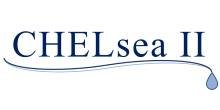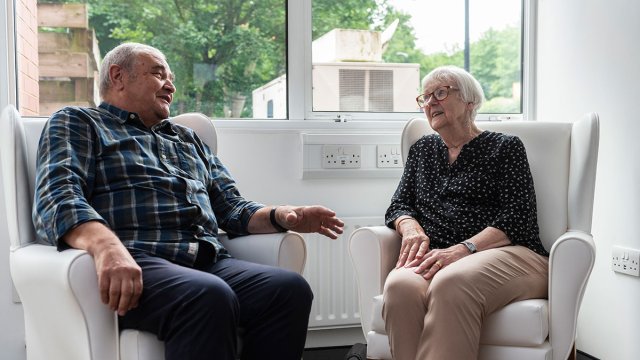
CHELsea II trial
CHELsea II: Cluster randomised trial of clinically assisted hydration in patients in the last days of life.
Professor Andrew Davies, Chief Investigator talks about the CHELsea II trial
Trial summary
The aim of the CHELsea II trial is to assess whether giving patients in the last days of life fluids via a drip (“clinically-assisted hydration”, CAH) is effective at preventing them from developing delirium (“terminal agitation”).
This problem often occurs at end-of-life, and causes distress to patients (e.g. confusion, restlessness), families, and healthcare professionals. Furthermore, it often means that the patient requires sedating in the last days of life.
We will also explore if CAH affects other end-of-life problems (e.g. noisy breathing, shortness of breath), causes any side effects, and affects length of survival.
Background
The use of CAH in the last days of life is very variable (and highly debated), because there is no high-quality research to show whether it improves (or worsens) end-of-life care. In some patients there is a clear reason to start or to continue CAH, whilst in other patients there is a clear reason not to start or to discontinue CAH. However, in most patients there is no indication one way or another.
The research team has completed a feasibility (provisional) study, which included 200 cancer patients from hospices/hospitals in England and Wales. The results suggest that CAH may delay the onset of delirium, but that CAH can cause side effects in some patients (e.g. fluid retention). A larger study is, therefore, needed to rigorously evaluate the role of CAH at the end of life.
Design and methods
80 hospices/hospitals in United Kingdom, and 1600 patients in the last week of life, will take part in the study.
The study is a cluster randomised trial, which means that hospices/hospitals (“clusters”) will be allocated at random to one of two standard (usual) interventions. Intervention A involves supporting the patient to drink, regular mouth care, and management of pain and other symptoms. Intervention B involves supporting the patient to drink, regular mouth care, management of pain and other symptoms, and CAH. All eligible patients within each hospice/hospital will receive the same intervention (if appropriate).
Consent will be obtained whenever possible from the patient, but advice about study entry may be obtained from a “personal consultee” (family member, friend), a “nominated consultee” (healthcare professional), or Welfare Attorney/Welfare Guardian/Nearest Relative (in Scotland) if the patient is unable to provide consent. Patients will be given fluids either into a vein, or into the tissues under the skin. The amount of fluid given will be based on the patient’s weight, and the decision to continue/discontinue the fluids will be made by the patient’s usual doctors and nurses. Patients will be assessed for end-of-life problems at least every 4 hours by the patient’s usual doctors and nurses, and data will be collected on the presence of these problems, use of medication (to treat these problems), and side effects of CAH.
Dissemination
The results will be disseminated to healthcare professionals through presentations at scientific meetings, and publications in medical journals, and to the public by means of usual media sources.
Essential study documents
You should have received a link to access the SharePoint site for the researchers area, if you do not have access, please contact chelseaII@surrey.ac.uk.






